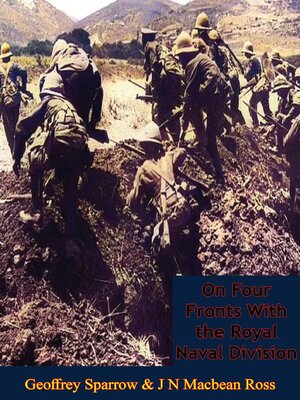
Sign up to save your library
With an OverDrive account, you can save your favorite libraries for at-a-glance information about availability. Find out more about OverDrive accounts.
Find this title in Libby, the library reading app by OverDrive.



Search for a digital library with this title
Title found at these libraries:
| Library Name | Distance |
|---|---|
| Loading... |
"The Blue Jackets who fought on land The time of Nelson was not only notable because of the success in nautical warfare of the man himself, but also because it was the zenith of the 'age of sail' that left British sea power so dominant that Britannia really did 'rule the waves.' No navy could stand against the might of the Royal Navy, and so until Jutland during the Great War it would not fight another major battle at sea. Queen Victoria's ever expanding empire meant that British forces were perpetually set against often underdeveloped powers and the navy took its part, but most of the hard work of empire building would inevitably fall upon the British army. Of course, the Royal Navy had its own 'soldiers'—the Royal Marines. The particular talents and skills of sailors were often required, particularly whilst manning 'the guns, ' so the 19th century saw the 'blue jackets' in action in the Crimean War, the Indian Mutiny, the Zulu War, the Boer War and several other conflicts. The early years of the 20th century brought a period of instability that inexorably dragged the great powers of Europe towards the cataclysm of blood which was to be the Great War of 1914-18...The Royal Naval Division was formed around a cadre of Royal Marines and sailors and was expanded as a unit of the New Army by volunteers. The Division saw action in the defence of Antwerp in 1914, on Helles and Anzac during the disastrous Gallipoli Campaign in 1915 and on the Western Front where it took part in the Battle of the Somme in 1916 and the Third Battle of Ypres in 1917. This book was written by one of the their number and is an often light-hearted account of the wartime record of the division, full of incident and anecdote and scattered with occasionally humorous line drawings. There is little in print about the Royal Naval Division in the First World War so this will make a welcome addition to any naval library."-Print ed.







